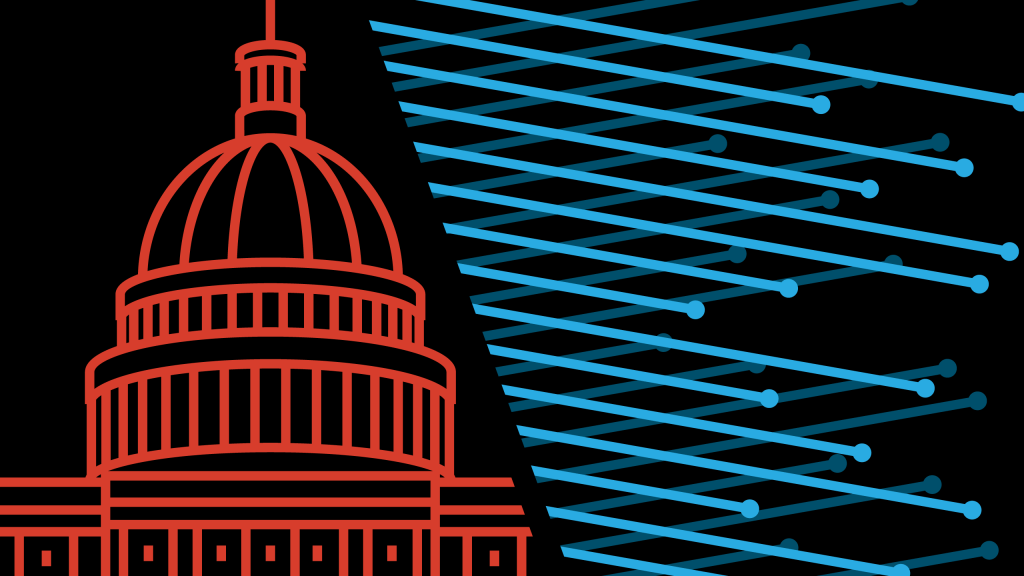Instead of cheering a reduction of needless government involvement, some — including a few members of Congress — are arguing that the U.S. needs to insert itself in a clerical role for certain coordination functions for the internet.
The companies, organizations and individuals that actually use the functions have agreed that the U.S. government involvement isn’t needed. To be clear, this coordination only works because everyone agrees to it voluntarily — and if the U.S. insists on inserting itself, those using the function could agree to do things another way.
In fact, in a reversal from the stereotype of a bureaucracy seeking ever-expanding power, the government agency that would be tasked with this role agrees that the plan to implement the functions without the U.S. government would work just fine. Unfortunately, those advancing arguments for U.S. involvement demonstrate fundamental misunderstandings about how the internet works. Indeed, continued U.S. government involvement in this function makes it more likely, not less, that the outcomes critics seek to avoid — including interference by foreign government in the operation of the internet — would come to pass.
Since 1998, the Internet Corporation for Assigned Names and Numbers (ICANN) has performed a critical but basically clerical job for the internet: the IANA functions. The Internet Assigned Numbers Authority (or IANA) is a little like a land registry for the internet: It performs a critical function because keeping the registry up to date and available is important, but it is also basically a clerical job because all the policy decisions are made by someone else.
Historically, ICANN has performed the IANA functions under a contract with the U.S. Department of Commerce National Telecommunications and Information Administration (NTIA). It was always the intention, from the founding of ICANN, for that contract to fade away as the internet community developed oversight mechanisms that could replace NTIA’s role.
The people on the internet who set the policies for the various IANA registries have come up with those oversight mechanisms. Accordingly, NTIA has announced that it intends to let the current contract with ICANN expire at the end of September. If that happens, then starting in October, the stewardship of the IANA functions will be performed just like everything else on the internet: through collaboration of the interested parties (most of whom are from the private sector).
This is a clear example of a government program that worked. The conditions for success were laid out, and they were met — and now the government can step out of the way and allow the private sector to keep up the pace of innovation on the internet.
It is particularly dangerous to suggest that maintaining the U.S. government’s role in IANA will prevent attempts by foreign governments to interfere with the internet. On the contrary, the best way to encourage interference is for the U.S. to refuse to complete a transition that was first discussed when the founder of Facebook was 14 years old. Over the past two years, people from all over the internet have been working on nailing down the details of this stewardship transition.
If the U.S. government pulls the rug out from under all that work at the last minute, it will encourage foreign governments’ claims that the U.S. really does have control. It will inspire them to renew calls to move IANA stewardship to the United Nations or some other intergovernmental forum. Instead of enacting the current plan, which will be invisible to practically every person on the internet, reasserting U.S. government authority will make the internet an international political football.
And the truth is that the U.S. government does not have control anyway. The internet is a voluntary system: In a network of networks, there is no center of control because there is no center. The only thing that works is positive incentives to do the right thing in your enlightened self-interest. People use IANA today because it is convenient to do so. Make it inconvenient, and you set up the conditions by which people turn to some other mechanism.
So, any reassertion of U.S. government power depends on a fantasy that the U.S. government actually can assert that power. If the U.S. government does not keep faith with its previous announcements about the IANA transition, the users of IANA are just as likely to give up on it and go find another way to solve their problems.
The system works and is stable today because the various actors can be relied upon to do what they say. If one party (such as the U.S. government) changes its mind with no technical justification, everyone else will need to think twice about what that party will do in other cases. Such mistrust would introduce much bigger changes than merely letting the IANA contract expire, as it is set to do.
We have a good plan for stewardship of the IANA functions. Once in place, it will work just like everything else on the internet: through bottom-up, private-sector-led, voluntary cooperation. It is the U.S. government role that is the anomaly. The people who actually make the internet work — the technical organizations that make the infrastructure and civil society groups dedicated to freedom of expression on the internet — believe their stewardship plan is the true way to protect and foster the internet. It is time to get the U.S. government out of the way, and let the internet work the way it is designed to, resistant to control by any one government or organization.































Comment